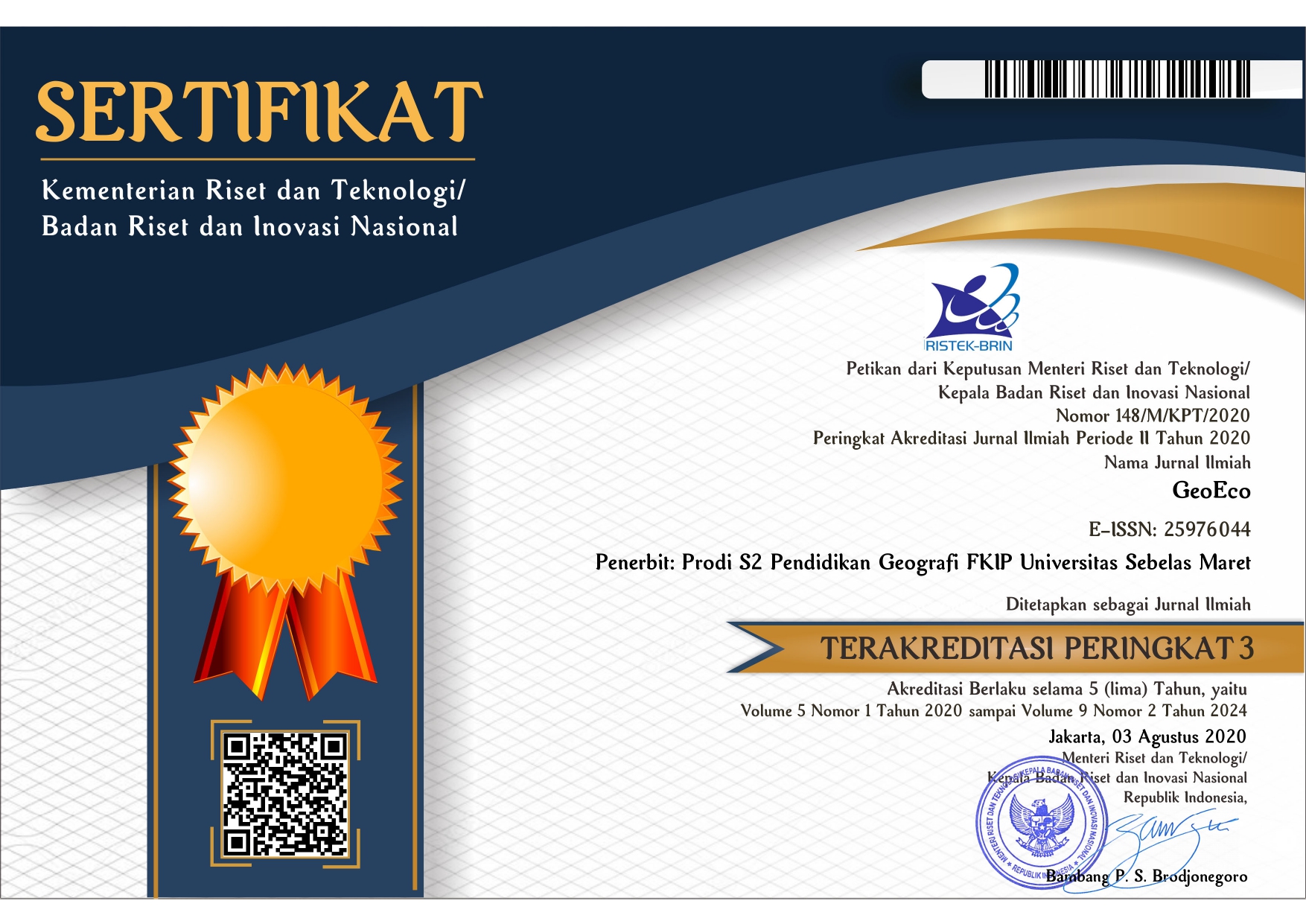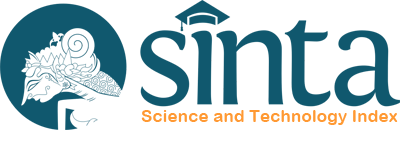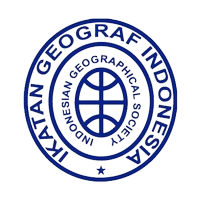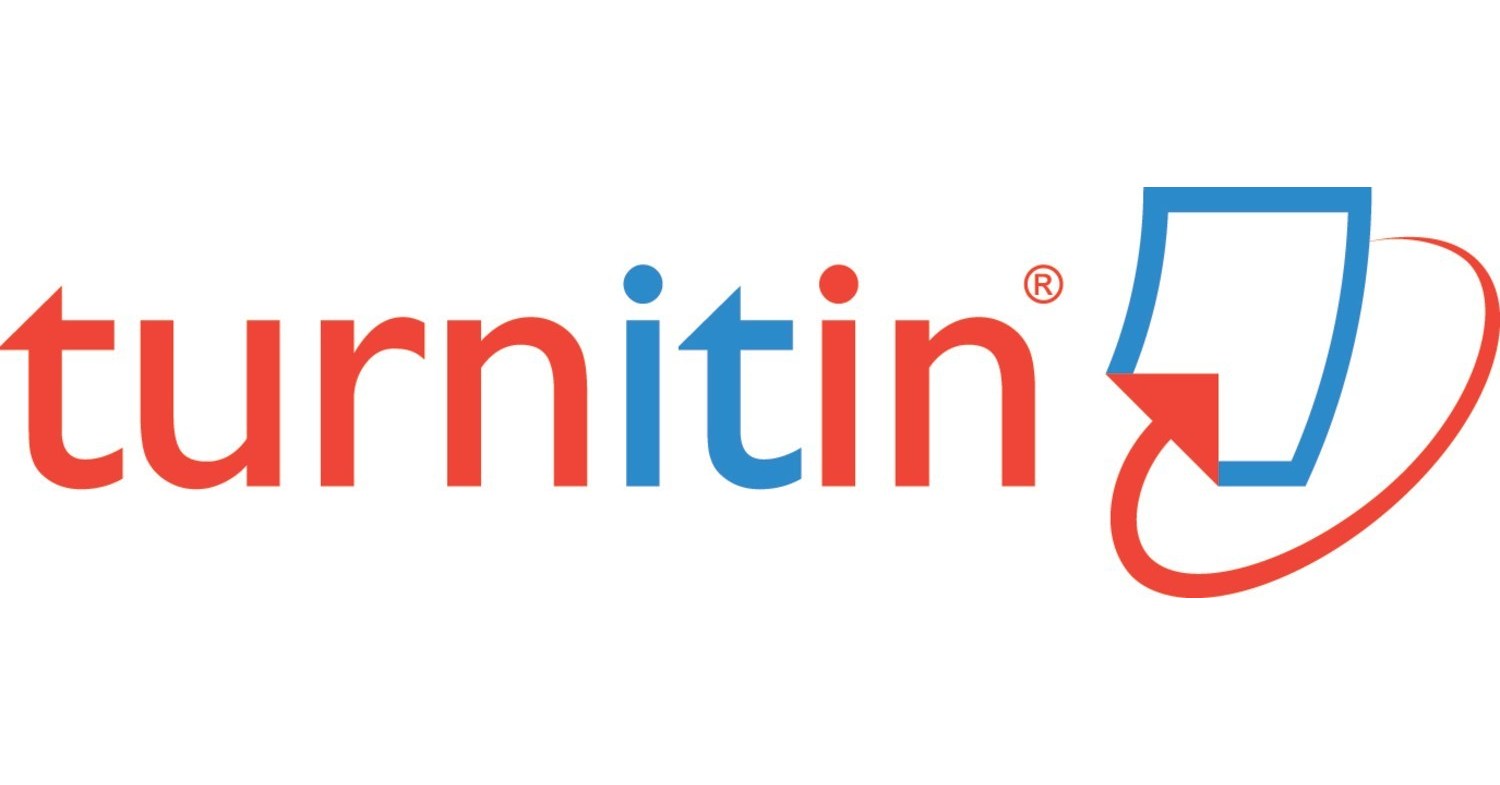IMPROVING STUDENTS LEARNING OUTCOMES USING GROUP INVESTIGATION METHOD
Abstract
Keywords
Full Text:
PDFReferences
Ainiyah, N., Gufron, A., Marzuki, M., Posangi, S. S., Yahiji, K., Rohman, A., Tolchah, M., & Das, S. W. H. (2022). Group investigation model to improve interpersonal skills. International Journal of Evaluation and Research in Education, 11(1). https://doi.org/10.11591/ijere.v11i1.21914
Arikunto, S. (2012). Prosedur penelitian : suatu pendekatan praktik / Suharsimi Arikunto | OPAC Perpustakaan Nasional RI. In Jakarta: Rineka Cipta.
Asyari, M., Al Muhdhar, M. H. I., Susilo, H., & Ibrohim, I. (2016). Improving critical thinking skills through the integration of problem based learning and group investigation. International Journal for Lesson and Learning Studies, 5(1). https://doi.org/10.1108/IJLLS-10-2014-0042
Buchs, C., & Butera, F. (2015). Cooperative learning and social skills development. In Collaborative Learning: Developments in Research and Practice.
Goss, H. (2022). Student Learning Outcomes Assessment in Higher Education and in Academic Libraries: A Review of the Literature. Journal of Academic Librarianship, 48(2). https://doi.org/10.1016/j.acalib.2021.102485
Jacobs, G. (1991). Foundations of Cooperative Learning. Educational Research Association.
Johnson, R., & Johnson, D. (1999). Cooperative learning in the science classroom. Phsycal Sciences Magazine, 69(1).
Koç, R. A. Y., Okumuş, R. A. S., & Öztürk, B. (2013). Effect of Cooperative Learning Model on Science and Technology Laboratory Practices Lesson. International Journal on New Trends in Education and Their Implications, October.
Komala, R., Lestari, D. P., & Ichsan, I. Z. (2020). Group investigation model in environmental learning: An effect for students’ higher order thinking skills. Universal Journal of Educational Research, 8(4A). https://doi.org/10.13189/ujer.2020.081802
Malisa, D., & Barutu, F. A. (2019). Pengaruh Model Pembelajaran Kooperatif Tipe Investigasi Kelompok Terhadap Hasil Belajar Matematika Siswa Kelas Vii Smp Negeri 1 Tebing Tinggi. Jurnal Online Mahasiswa Pendidikan Matematika (JOMPEMA), 1(1).
Muhamad, R., Mahmud, M., & Bahsoan, A. (2023). The Use Of Learning Media on Students’ Learning Outcomes. Journal of Economic and Business Education, 1(1). https://doi.org/10.37479/jebe.v1i1.16925
Nana sudjana. (2005). Penilaian hasil proses belajar mengajar / Nana Sudjana. In Bandung: Remaja Rosdakarya.
Ratnawati, N., & Idris. (2020). Improving student capabilities through research-based learning innovation on E-learning system. International Journal of Emerging Technologies in Learning, 15(4). https://doi.org/10.3991/ijet.v15i04.11820
Rosba, E., Zubaidah, S., Mahanal, S., & Sulisetijono, S. (2021). Digital Mind Map Assisted Group Investigation Learning for College Students’ Creativity. International Journal of Interactive Mobile Technologies, 15(5). https://doi.org/10.3991/ijim.v15i05.18703
Sharan, S., Sharan, Y., & Geok-Chin Tan, I. (2013). The group investigation approach to cooperative learning. In The International Handbook of Collaborative Learning. https://doi.org/10.4324/9780203837290-29
Siddiqui, M. H. (2013). Group Investigation Model of Teaching :Enhancing Learning Level. Paripex - Indian Journal of Research, 3(4).
Slavin, R. E. (2015). Cooperative learning in elementary schools. Education 3-13, 43(1). https://doi.org/10.1080/03004279.2015.963370
Sugiyono. (2015). Sugiyono, Metode Penelitian dan Pengembangan Pendekatan Kualitatif, Kuantitatif, dan R&D, (Bandung: Alfabeta, 2015), 407 1. Metode Penelitian Dan Pengembangan Pendekatan Kualitatif, Kuantitatif, Dan R&D, 2015.
Suhartono, Degeng, I. N. S., Suyitno, I., & Sulton. (2019). A comparison study: Effects of the group investigation model and the direct instruction model toward science concept understanding. Jurnal Pendidikan IPA Indonesia, 8(2). https://doi.org/10.15294/jpii.v8i2.18135
Susanti, E., Sutisnawati, A., Nurasiah, I., & Kritis, B. (2019). Penerapan Model Group Investigation untuk Meningkatkan Kemampuan Berpikir Kritis Siswa di Kelas Tinggi. Jurnal Kependidikan Utile, V(2).
Tsoi, M. F., Goh, N. K., & Chia, L. S. (2004). Using Group Investigation for Chemistry in Teacher Education. Asia-Pacific Forum on Science Learning and Teaching, 5(1).












.png)

